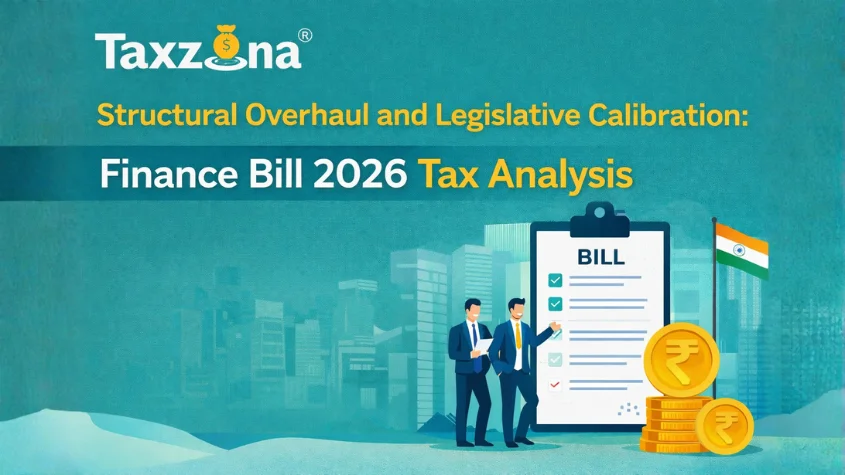
Madras HC: Mere GST Portal Upload Not Valid Service of Notice
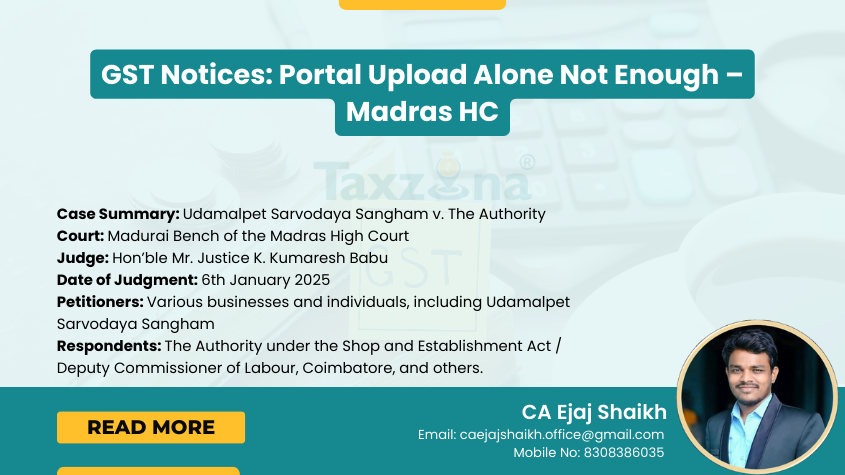
1. Issue Involved
The primary issue before the court was:
Whether mere uploading of notices/orders on the GST portal satisfies the service requirements under Section 169 of the Tamil Nadu Goods and Services Tax (TNGST) Act, 2017, or whether additional modes of service must be followed to ensure compliance with principles of natural justice.
The petitioners argued that they were unaware of the notices/orders uploaded on the GST portal due to a lack of communication, while the respondents contended that service through the portal was legally sufficient.
Facts of the Case
- The petitioners, consisting of various businesses, challenged assessment orders issued under the TNGST Act, 2017, arguing that they were not properly served with notices.
- They contended that the authorities only uploaded the notices on the GST portal and did not notify them through alternative means such as registered post, email, or physical delivery, as required under Section 169 of the Act.
- Many petitioners claimed that they relied on tax practitioners for filing returns, and their contact details were used instead of the taxpayers’ actual contact details.
- This led to many taxpayers being unaware of the notices, resulting in ex-parte assessment orders against them.
The respondents, on the other hand, defended their actions, citing previous judgments, which held that service through the GST registration was valid under the law.
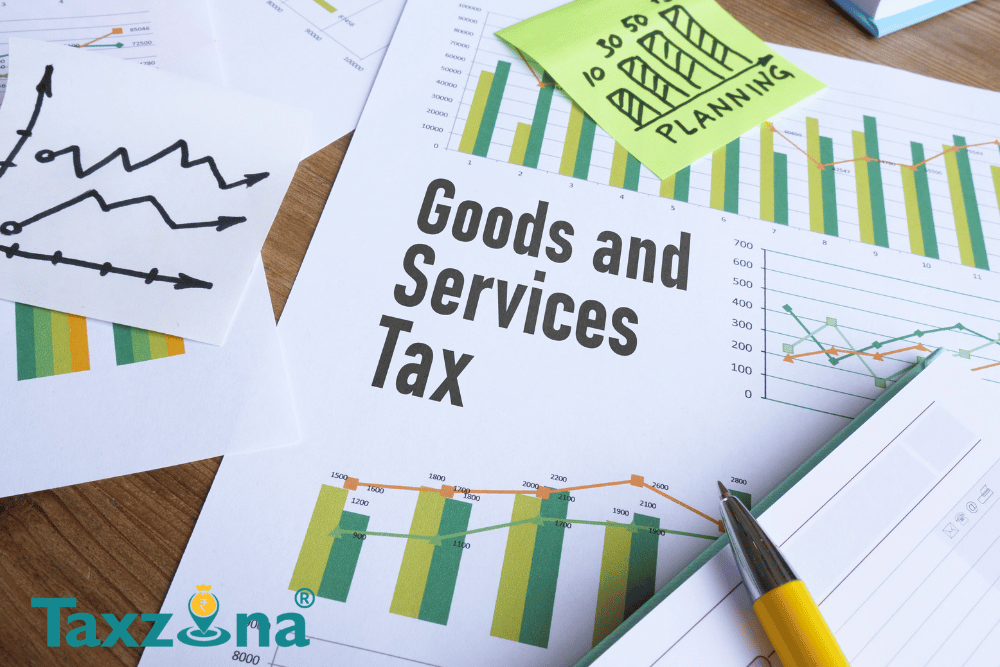
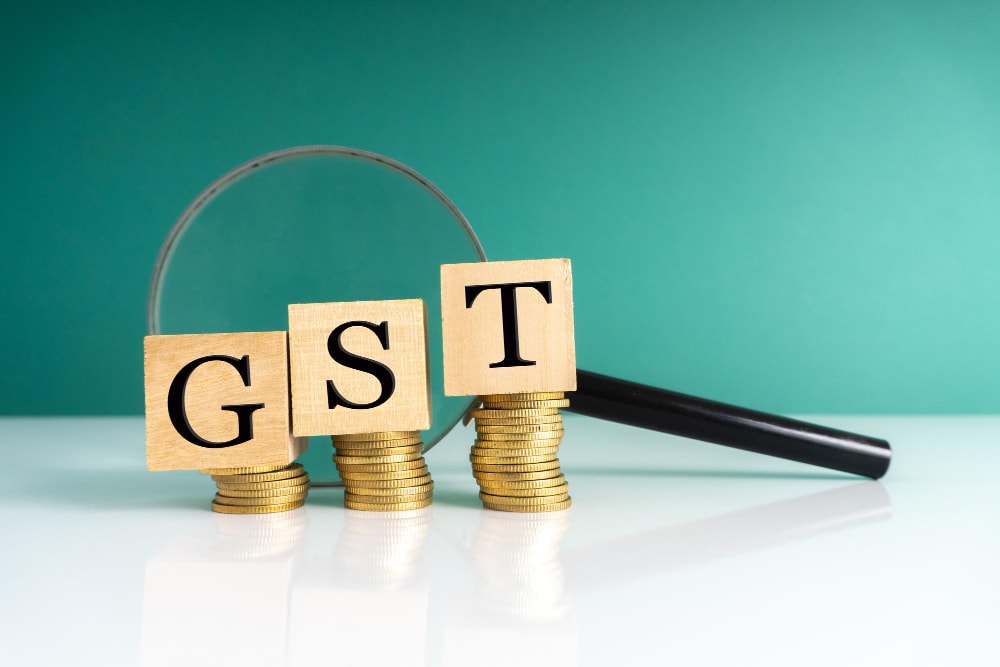
3. Observations of the Court
(A) Service of Notices Must Comply with Section 169 of the GST Act
- The court emphasized that Section 169 specifies multiple modes of service, including:
- Direct service (hand delivery, messenger, or courier)
- Registered post/speed post
- Email communication
- Making it available on the GST portal
- Publication in a newspaper
- Affixation at the last known place of business
These modes must be read in a structured manner, ensuring that the taxpayer receives proper notice.
(B) Mere Uploading on the GST Portal is Not Always Sufficient
- The court held that simply uploading a notice on the GST portal does not fulfil the legal requirement of service unless it is established that the taxpayer had knowledge of the notice.
- If the taxpayer is not made aware through email, SMS, or physical delivery, the service is not effective.
(C) Principles of Natural Justice Must Be Followed
- Not informing taxpayers about the uploaded notices violates natural justice.
- Taxpayers should be given a fair opportunity to respond to notices before assessment orders are passed.
(D) Alternative Modes of Service Should be Used if Necessary
- If direct service, email, or post is impractical, only then can the authorities rely on portal publication.
- The court ruled that Section 169 must be applied in a stepwise manner, ensuring that at least one effective method of service is used before resorting to portal-based notices.
(E) Rules Cannot Override the Statutory Provisions of the Act
- Rule 149 of the GST Rules, which allows electronic service, cannot limit the wider service requirements prescribed under Section 169 of the Act.
- The Act mandates multiple alternative methods of service, which cannot be ignored in Favor of electronic notices alone.
(F) Past Judgments Support the Petitioners’ Claims
- The court analysed various previous judgments, including those from the Supreme Court, Madras High Court, and Kerala High Court.
- These judgments confirmed that proper service is essential, and mere portal upload is not enough if the taxpayer remains unaware.
4. Judgment of the Court
Based on the above observations, the Madras High Court ruled as follows:
- The assessment orders were quashed due to improper service of notices.
- The tax authorities were directed to reissue notices properly by ensuring compliance with Section 169 of the Act.
- The petitioners must be given an opportunity to respond before any new assessment order is passed.
- Fresh notices should be served using proper methods, including:
- Personal delivery
- Registered post
- Email alerts
- Other alternative modes as prescribed in Section 169
- No limitation period will apply to reissued notices – The fresh proceedings will be treated as a continuation of the previous proceedings.
The court further instructed that the taxpayers must file their replies by 31st January 2025, after which the authorities must grant them a personal hearing before passing any fresh orders.
5. Case References Cited by the Court
The court relied on several key judgments, including:
- M. Satyanarayana v. State of Karnataka & Anr. [(1986) 2 SCC 512] Supreme Court ruled that procedural fairness must be ensured in taxation matters.
- Pandidorai Sethupathi Raja v. Superintendent of Central Tax, Chennai [2022 SCC Online Mad 8986] Held that taxpayers have an obligation to check the GST portal but should also receive notifications via email or SMS.
- Singaravelar Spinning Mills (P) Ltd. v. State of Tamil Nadu & Anr. [2010 SCC Online Mad 6454] Confirmed that multiple modes of service must be followed for compliance with natural justice.
- Pee Bee Enterprises v. Assistant Commissioner & Anr. [2020 SCC Online Ker 3331] Held that an order must be properly communicated to the taxpayer through a reliable mode of service.
- Ram Prasad Sharma v. Chief Commissioner & Anr. [2020 SCC Online MP 4650] Madhya Pradesh High Court ruled that improper service of notices renders an order invalid.
6. Key Learnings from the Judgment
- Know Your Rights – If you have not been properly served with a notice, you can challenge the assessment order.
- Regularly Check the GST Portal – Even though the court ruled in favor of taxpayers, it is still advisable to check for notices.
- Ensure Your Contact Details Are Correct – Update your phone number and email in the GST portal to receive alerts.
7. Conclusion
The Madras High Court’s ruling strengthens taxpayer rights and reinforces the importance of proper service of notices in GST assessments. By holding that mere uploading of orders on the GST portal is not sufficient, the court ensures that natural justice is upheld in taxation matters.
This judgment sets a strong precedent for similar cases and clarifies the proper procedure for serving GST notices, balancing tax compliance with fairness to taxpayers.
Recent Post

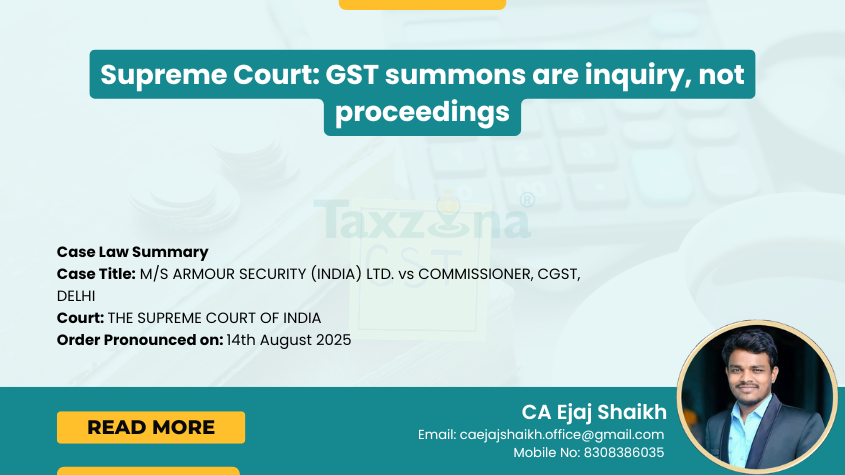
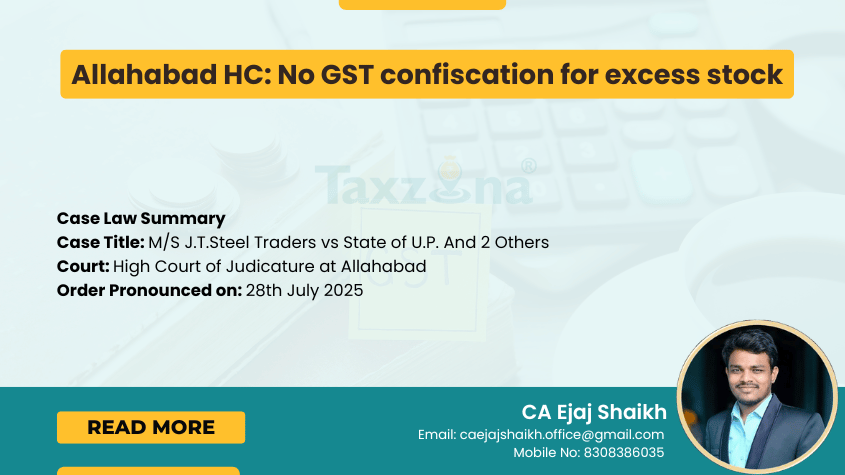
Have Any Question?
Our experts at Taxzona are here to help you with GST, Income Tax, and all your financial queries. Get reliable guidance tailored to your business and personal needs.

